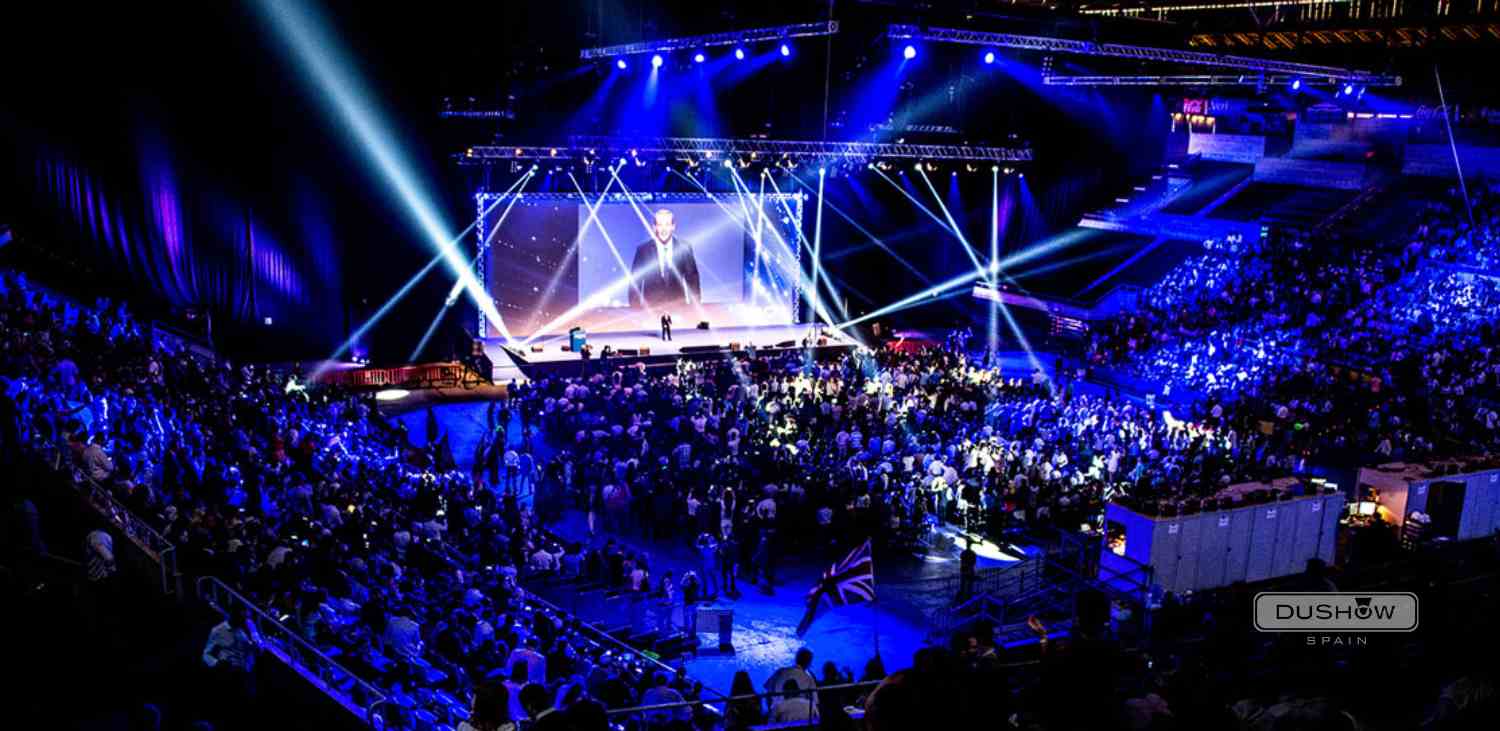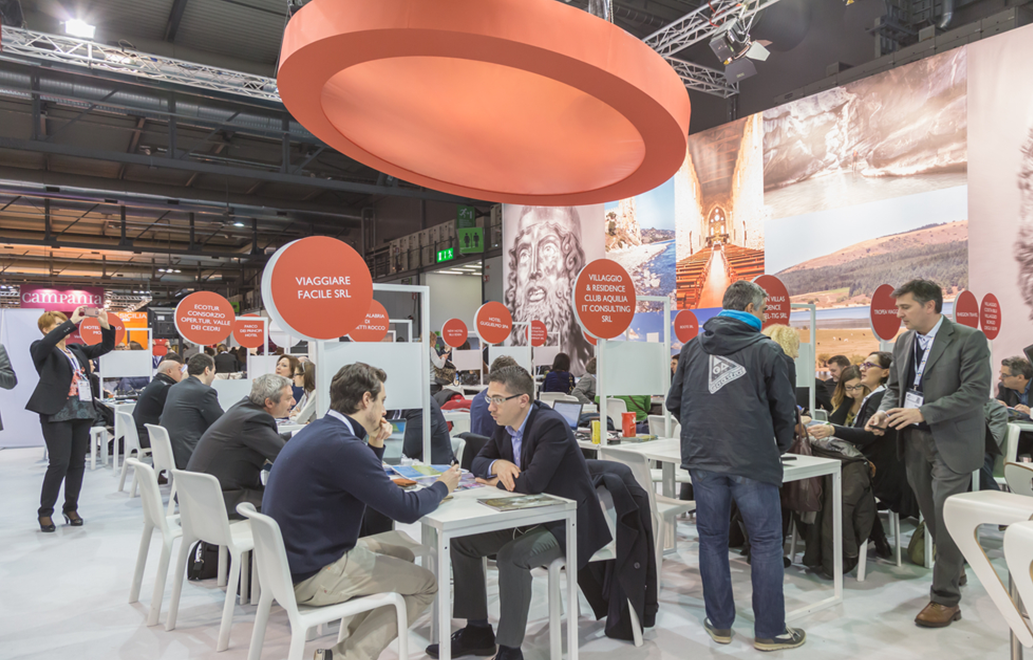Peek inside the production process of top-tier event production charlotte
Wiki Article
Understanding Event Production: Why It Is Necessary for Successful Celebrations
Event production plays a critical duty in shaping effective gatherings. It entails cautious planning, sychronisation, and implementation to assure every detail straightens with the event's vision. This process not just improves guest experiences however also promotes purposeful connections among individuals. Understanding the complexities of event production can significantly affect the overall end result. What are the crucial components that add to an effective event, and how can they be efficiently handled?The Role of Event Production in Developing Remarkable Experiences
Numerous variables add to the success of an occasion, event production plays an essential function in crafting unforgettable experiences. This multifaceted procedure encompasses various elements, including preparation, logistics, and execution. Effective event production guarantees that every information straightens with the general vision, creating a seamless flow that astounds participants. By working with timelines, taking care of resources, and overseeing technical aspects, event producers develop a structure for impactful experiences.Moreover, they curate environments that resonate with the target audience, enhancing interaction and emotional connection. From picking suitable venues to incorporating innovative modern technology, the options made throughout production significantly affect how attendees view and keep in mind the event. By prioritizing top quality and attention to detail, event production changes normal celebrations into remarkable minutes, leaving long lasting perceptions. Inevitably, the proficient orchestration of these components specifies the essence of an event, showcasing the value of expert event production in accomplishing remarkable end results.Key Components of Effective Event Production
Efficient event production rests on numerous key parts that guarantee success. Preparation and coordination develop a solid foundation, while technical arrangement demands deal with logistical needs. Furthermore, implementing audience involvement approaches enhances the overall experience, making the event remarkable.
Planning and Control
Planning and control function as the foundation of successful event production, ensuring that every detail lines up effortlessly to produce an unforgettable experience. Effective planning involves developing a clear vision and purposes, while control entails the meticulous organization of logistics, routines, and resources. A distinct timeline is necessary, guiding all stakeholders via essential turning points and tasks. Communication plays a pivotal duty, cultivating collaboration among staff member, vendors, and venue personnel. Normal conferences and updates aid to attend to challenges quickly, ensuring that everybody remains aligned with the event objectives. Eventually, an organized method to planning and sychronisation not just boosts performance but also greatly contributes to the overall success and pleasure of the event for guests and organizers alike.Technical Arrangement Requirements
An effective event depends greatly on its technical setup requirements, which incorporate essential parts such as audio-visual tools, illumination, hosting, and connectivity. Audio-visual tools consists of microphones, audio speakers, and projectors, guaranteeing that presentations and efficiencies are supplied clearly. Appropriate lights boosts the setting and highlights crucial areas, while staging gives the essential system for speakers and entertainers. Connectivity, including Wi-Fi and electrical gain access to, is important for smooth interaction and technology assimilation. Each element should be carefully intended and carried out, tailored to the event's details requirements. Poor technical arrangements can cause interruptions, adversely affecting the general experience for attendees, emphasizing the significance of thorough prep work and attention to information in event production.Audience Involvement Techniques

The Value of Preparation and Coordination
Planning and control are critical to the success of any event production. Effective timeline management, source appropriation approaches, and team interaction characteristics play essential functions in making sure that all aspects integrated seamlessly. Without a structured technique to these elements, events risk encountering hold-ups, budget plan overruns, and miscommunication among staff member.Reliable Timeline Monitoring


While successful event production frequently rests on creativity and execution, effective timeline management remains a necessary element that can not be overlooked. A well-structured timeline offers as the foundation of any event, ensuring that each phase is performed in a timely way. It enables the sychronisation of different jobs, from venue arrangement to guest arrivals, while avoiding potential bottlenecks. By clearly laying out target dates and responsibilities, review event coordinators can maintain emphasis and adapt to unpredicted obstacles. In addition, a carefully crafted timeline promotes communication amongst team participants, advertising accountability and cooperation. Ultimately, efficient timeline monitoring not only enhances operational efficiency but additionally contributes considerably to the overall success and smooth execution of the event, leaving guests with a remarkable experience.
Resource Allocation Strategies
Effective source allotment strategies are crucial for the successful execution of any type of event. Proper preparation enables event coordinators to recognize and disperse sources, such as funds, personnel, and materials, in a manner that takes full advantage of effectiveness. By reviewing the particular demands of each facet of the event, organizers can focus on tasks and allot resources appropriately. Control amongst various departments makes sure that all components, from satisfying audiovisual needs, are adequately supported. This tactical strategy not just reduces waste but likewise improves the total experience for participants. In addition, anticipating potential obstacles and having backup strategies in position permits for smoother procedures. Ultimately, reliable source allowance adds substantially to attaining event objectives and guaranteeing a remarkable celebration.Team Communication Dynamics
Exactly how can seamless communication among employee change the event production procedure? Efficient communication is important for coordinating tasks, sharing updates, visit this site right here and attending to obstacles in real-time. When employee take part in open discussion, they can quickly determine possible problems and develop services collaboratively, lessening delays and misconceptions. This dynamic fosters a natural setting where every person comprehends their duties and duties, leading to a much more synchronized initiative. Additionally, normal check-ins and feedback loopholes boost responsibility and warranty placement with the event's objectives. By focusing on communication approaches, groups can enhance workflows, boost morale, and inevitably boost the general quality of the event. Successful events depend upon the ability to communicate efficiently, making it a crucial component of event production.Enhancing Attendee Engagement With Creative Layout
Innovative design plays a vital function in boosting participant interaction at events, as it fosters an immersive setting that mesmerizes individuals' focus. By integrating innovative visuals, interactive components, and thematic decor, event coordinators can produce memorable experiences that reverberate with attendees. Thoughtful format designs advertise activity and expedition, encouraging guests to connect with screens and each other.Incorporating technology, such as increased fact or live ballot, additional enriches the experience, allowing for real-time comments and interaction. Furthermore, sensory elements like illumination, sound, and aroma can stimulate feelings and produce a much more engaging atmosphere.The use storytelling through layout helps share the event's purpose and message, making it much more relatable for participants. browse around here Inevitably, creative style not only boosts involvement yet also strengthens links among individuals, leaving an enduring perception that prolongs past the event itself. This tactical approach to style is necessary for successful gatherings.Managing Logistics for a Smooth Implementation
While the excitement of an event can draw attendees in, taking care of logistics is essential to safeguard a seamless implementation. This entails meticulously coordinating various elements, from venue option and layout to wedding catering and transport. Efficient logistics administration guarantees that all parts align, permitting for a smooth flow from enrollment to the verdict of the event.Additionally, a clear communication plan among all stakeholders is critical. This includes personnel, suppliers, and volunteers, that need to be informed of their duties and obligations. Preparing for potential obstacles, such as tools failure or unanticipated weather condition problems, can better enhance the event's success.Creating a comprehensive timeline helps keep the team on track and permits for prompt changes. Eventually, well-managed logistics not only help with a delightful experience for participants but also reflect the professionalism and reliability and reliability of the organizers, adding to the overall success of the event.
The Impact of Technology on Event Production
What function does innovation play in forming modern event production? Technology has become a cornerstone of reliable event production, enhancing both planning and execution procedures. From sophisticated enrollment systems to interactive applications, technology simplifies guest administration and enhances engagement. Virtual event systems permit organizers to get to wider audiences, damaging geographical barriers and facilitating hybrid gatherings that integrate in-person and on the internet experiences.Additionally, audiovisual innovations, such as high-definition displays and sound systems, boost the high quality of presentations and performances, making sure a memorable experience for attendees - event production charlotte. Social network assimilation allows real-time responses and interaction, cultivating neighborhood engagement in the past, during, and after the event. Information analytics devices aid coordinators in keeping an eye on participant habits and choices, making it possible for tailored experiences that resonate with diverse audiences. Overall, the assimilation of technology in event production not only boosts functional efficiency yet likewise enhances guest experiences, ultimately adding to the success of the eventReviewing Success: Determining the End Results of Your Event
Success in event production rests on efficient assessment, which involves measuring a variety of outcomes to assess the overall impact of an event. To attain this, organizers can employ both qualitative and quantitative metrics. Quantitative steps might consist of attendance numbers, ticket sales, and profits produced, while qualitative analyses might include guest contentment surveys and responses forms.Additionally, analyzing social media engagement and media protection can give understandings right into the event's reach and brand effect. Contrasting these metrics versus predefined goals assists determine if the goals were met.Furthermore, post-event debriefs with the planning group can uncover lessons found out and areas for improvement. By methodically reviewing these outcomes, event manufacturers can enhance future gatherings, guaranteeing continuous development and success. Inevitably, a detailed assessment not only highlights accomplishments however also notifies strategic decisions for subsequent events, cultivating a society of quality in event production.Regularly Asked Questions
What Credentials Should an Event Producer Have?
Event manufacturers should have strong business skills, creativity, and efficient communication capacities. A history in project monitoring, budgeting, and arrangement is vital. Relevant qualifications and experience in diverse event types further enhance their qualifications.Exactly How Can I Lower Event Production Prices Efficiently?
To efficiently reduce event production expenses, one can enhance supplier option, negotiate agreements, make use of in-house sources, focus on crucial aspects, apply innovation for effectiveness, and check out sponsorship chances to balance out costs without endangering quality.What Are the Common Difficulties in Event Production?
Usual challenges in event production include spending plan restraints, logistical control, vendor administration, time limitations, attendee engagement, technological problems, and unanticipated conditions - event production charlotte. Each aspect can substantially affect the overall success and smooth implementation of the eventHow Do I Choose the Right Place for My Event?
Choosing the best venue involves taking into consideration aspects such as place, capacity, amenities, and budget plan. Furthermore, examining ease of access and setting assures the picked room aligns with the event's goals and enhances the overall participant experience.What Is the Normal Timeline for Preparation an Occasion?
The normal timeline for planning an event varies, but typically includes phases such as concept growth, location option, vendor coordination, promotion, and final prep work, typically spanning a number of months to ensure a successful implementation.Report this wiki page